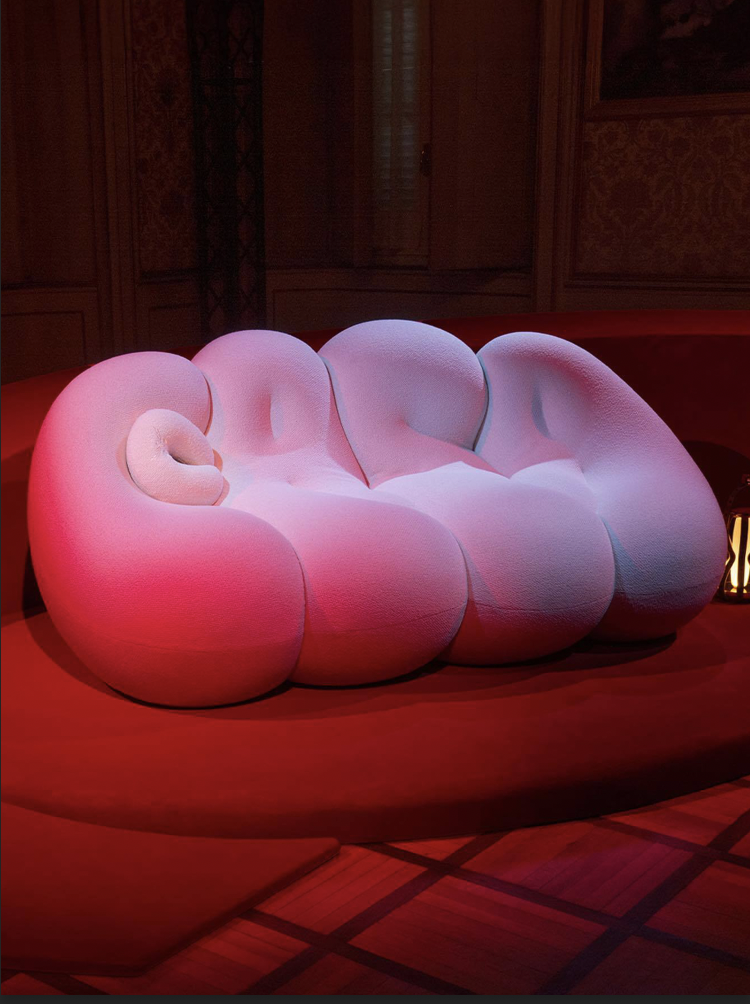Travis Alabanza in conversation
Travis Alabanza has emerged as a singular voice in UK theatre: creating vital work around Black trans identity using humour and audience interaction to probe the audience/performer dynamic. Yet that description sits uncomfortably with the diversity of their output — which spans poetry, installation and performance art, both within and out with the theatre space. By their own admission, Travis is “a performer that’s ended up working in theatre” rather than a theatre-maker through and through; a stance informed in part by the inaccessible nature of traditional theatres.
Alongside poetry chapbooks like Before I Step Outside (You Love Me), recent work includes creating an immersive, high-femme bedroom installation at the Free Word Centre; appearing in a comic, anti-colonial critique of Heart of Darkness; and inviting spectators into their inner dialogue in an intimate, experimental performance piece. Yet they’re perhaps best known for Burgerz: a show written in response to a transphobic attack that looks beyond the event itself towards the wider issue of societal inaction before discrimination. After a sold-out run at the Hackney Showroom, the work has gone on to tour the UK and Europe and received praise from the likes of Lyn Gardner, widely thought of as one of the UK’s most prominent theatre critics.
Fresh off the back of the show’s stint at Dublin Theatre Festival and Travis’s appearance in Ovalhouse’s We Dig, HUNGER sits down with them to talk Burgerz, “non-binary theatre” and theatre as a tool for positive change. Earlier in 2019, the Guardian asked: “Is Travis Alabanza the future of theatre?” Over the course of our conversation, it becomes clear that the answer to that question is in the affirmative.
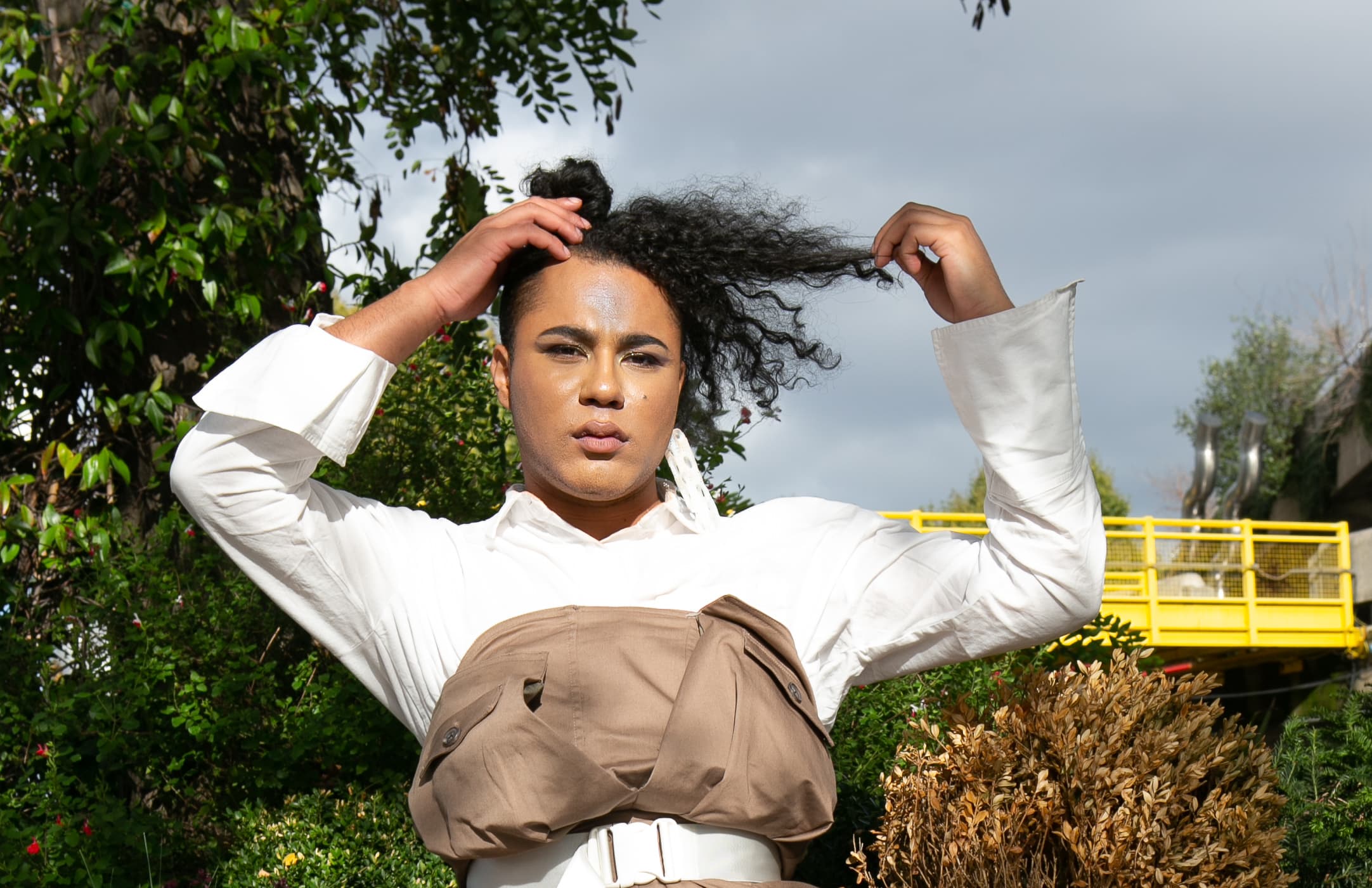
You’ve just performed your show Burgerz during a week-long run in Dublin. I was lucky enough to catch it at Edinburgh Fringe this August, where it was incredibly popular — people queuing for hours to get the return tickets kind of popular. What do you think has made it resonate so deeply with people?
I really wanted to make something that could force change: something to actively make people do better in society. It’s not a “here’s all the personal challenges I went through and how I overcame them” kind of narrative that decentres the audience.
You originally wrote the show in 2016 and programmers have been snapping it up since then, with no real signs of stopping. Do you think the show’s relevance has changed at all since it was first performed?
Unfortunately what this show is saying still matters so much. I really believe in it, it’s not one of those shows that you make and then feel weird about after. It’s been so incredible seeing something that has been in my life for so long and to see it begin to get the platform that something with those politics deserves. It seems like the show is going to continue to carry on: looking at the bookings, I’m going to be performing it until 2022.
What you said earlier about the show not decentring the audience feels like a really important aspect of why it’s been so effective. It seems like society has become really accustomed to almost passively consuming performers’ struggles — but Burgerz kind of wakes its audience up out of that complacency.
If I was going to do a show about trauma then I knew I had to do it in a way that flipped the performer/spectator dynamic. We’re very comfortable with watching marginalised artists when they’re in pain. When we struggle is when marginalised people are quick, or rude, or funny, or messy, or challenging…that’s when we really push our allyship. So that’s why Burgerz is trying to be quite funny as well: I didn’t want the audience to see us in one light, I wanted them to see us being trans and being human.
Burgerz and your wider work are some of the few instances of recent theatre that I can really think of — except Mika Johnson’s Pink Lemonade, which does so from a masculine perspective — that explores gender beyond the binary.
My work for the last four or five years has been doing that but, with Burgerz it’s the first time that the work has been able to do that with a larger audience. I’m trying to complicate the narrative of transness and open it up beyond male and female. We have a very binary way of thinking about transness: to make people understand us because we are being persecuted, there’s a bid to simplify us. A lot of people have a much more complicated relationship with gender than they’re allowing.
I saw your post on Twitter for International Pronouns Day earlier this month, where you wrote that you didn’t want your pronoun to be a shorthand for who you are. It seems like even if individuals are becoming more aware of the term non-binary or of people using they/them pronouns, they can still fall into the trap of homogenising people who might identify with those terms.
I use the word non-binary for shorthand, but mainly because language kind of fails it. I’m worried about this trend right now of trying to give things really clear definitions. I can understand why there’s an urge to do that, but I feel like it could simplify a really rich history. Gender non-conforming people have been about forever even if the word non-binary hasn’t. It’s a very natural thing for there to be people who are more than male or female.
What’s so interesting about performance being your primary choice of medium is that it can gesture beyond these restrictions of language and move towards something more abstract.
Performance gives us the tools to be the parts of ourselves we can’t be in real life. What I’m interested in creating with my work is some kind of collective feeling. With performance I can get people in the room and translate ideas in an accessible way. Whenever I make shows I ask in the back of my head; “Can my mum and my grandma ever see this? Would they understand this and feel what I want them to feel?” That’s my litmus test to ask whether the show is working in the way I want it to. With performance, it can be accessible. You could write in the academy or write these long posts but who’s got the time to read it?
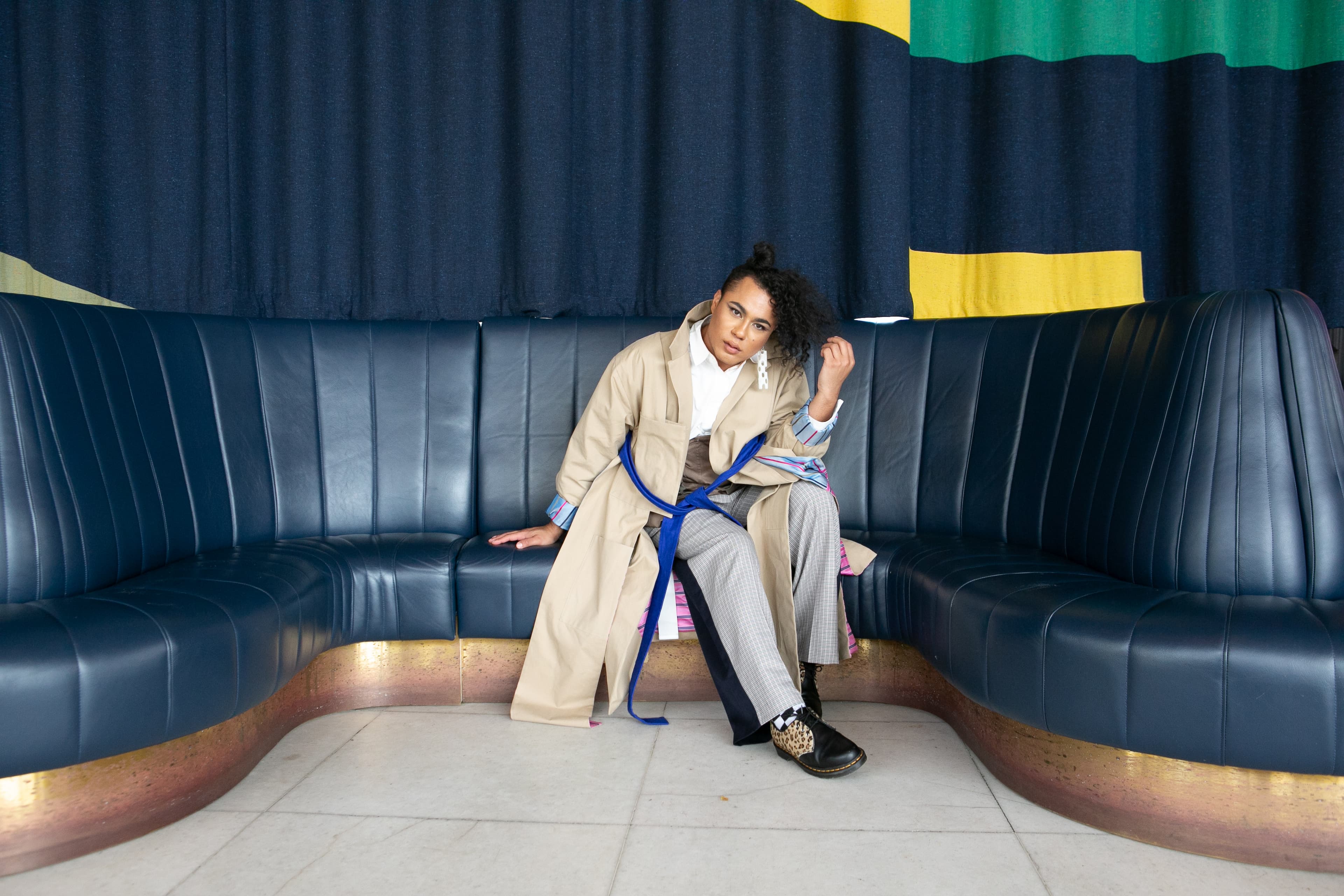
In London, you’ve most recently been seen for a few dates of Emma Frankland’s We Dig, which closed last weekend at Ovalhouse. What was the show about, and what attracted you to the project?
After 50 plus years Ovalhouse is moving to Brixton, so they commissioned some artists to help demolish the building. We Dig was five trans women and transfeminine people from across the world coming together dig a big hole in the main stage in a show about archiving and unarchiving. Originally I’d turned the project down because I was too busy but then Emma cornered me in the Edinburgh Fringe performers’ bar, bought me some chips and was like: “Well I’ve got this theatre and we’re allowed to demolish it with some other transfeminine people…you also get to use a pneumatic drill.”
It seems like a once in a lifetime project — what was the best part of working on the show?
Whereas my work and aesthetic is very pop colours, high polish filters, very shiny things, whenever I go to see Emma’s work I’m very like “wow, she’s always sweating.” Emma’s pretty badass. I think what’s great for me is the chance to be able to take on that style. In the show there’s a leak in the ceiling I’m having to fix, I’m climbing up and down scaffolding, I’m jumping into dirt, I’m not wearing heels…and I’m never not wearing heels on stage. It’s very cool to see a group of transfeminine people doing manual labour. There’s this image of trans women and femmes where, in order to “obtain” femininity, we have to stay within these really rigid boxes of femininity. There’s no fakeness to it, we’re genuinely digging a hole so it’s really fucking hard. And also everyone involved with the show— the cast, the crew, the stage manager —is trans.
Beyond Burgerz, which is still touring, what’s next for you?
Myself, Emma Frankland and Krishna Ithsa are working on a piece for the Roundhouse just for trans youth; we’re writing it and directing it for them to be a part of.
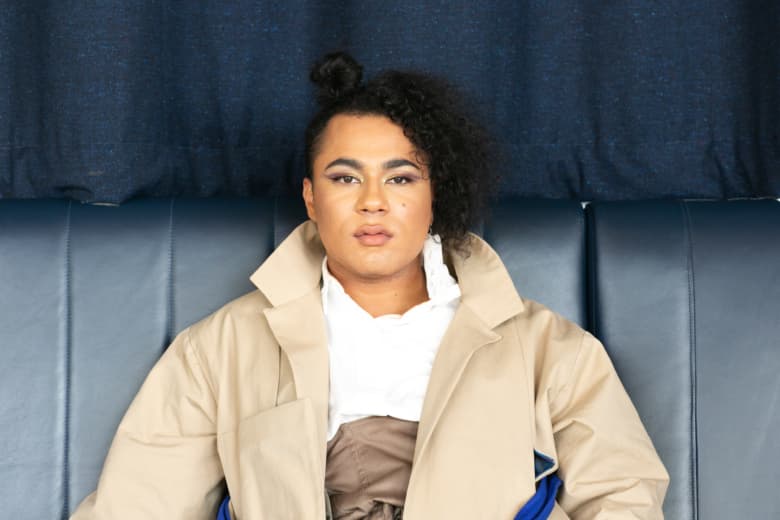
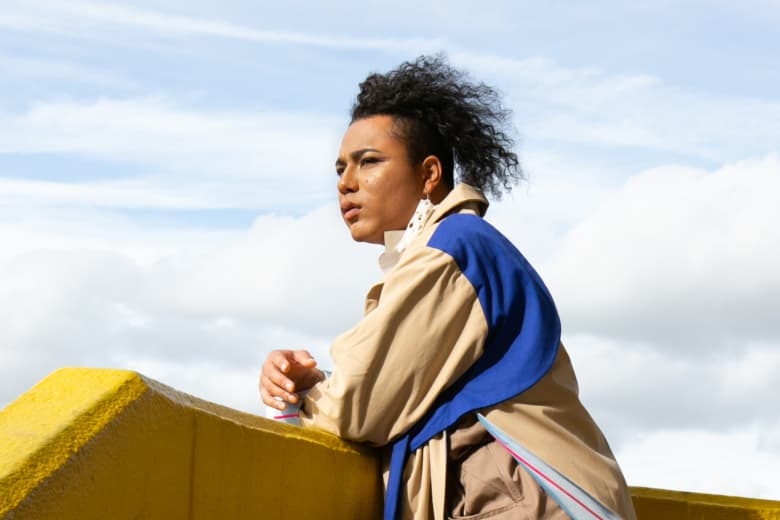
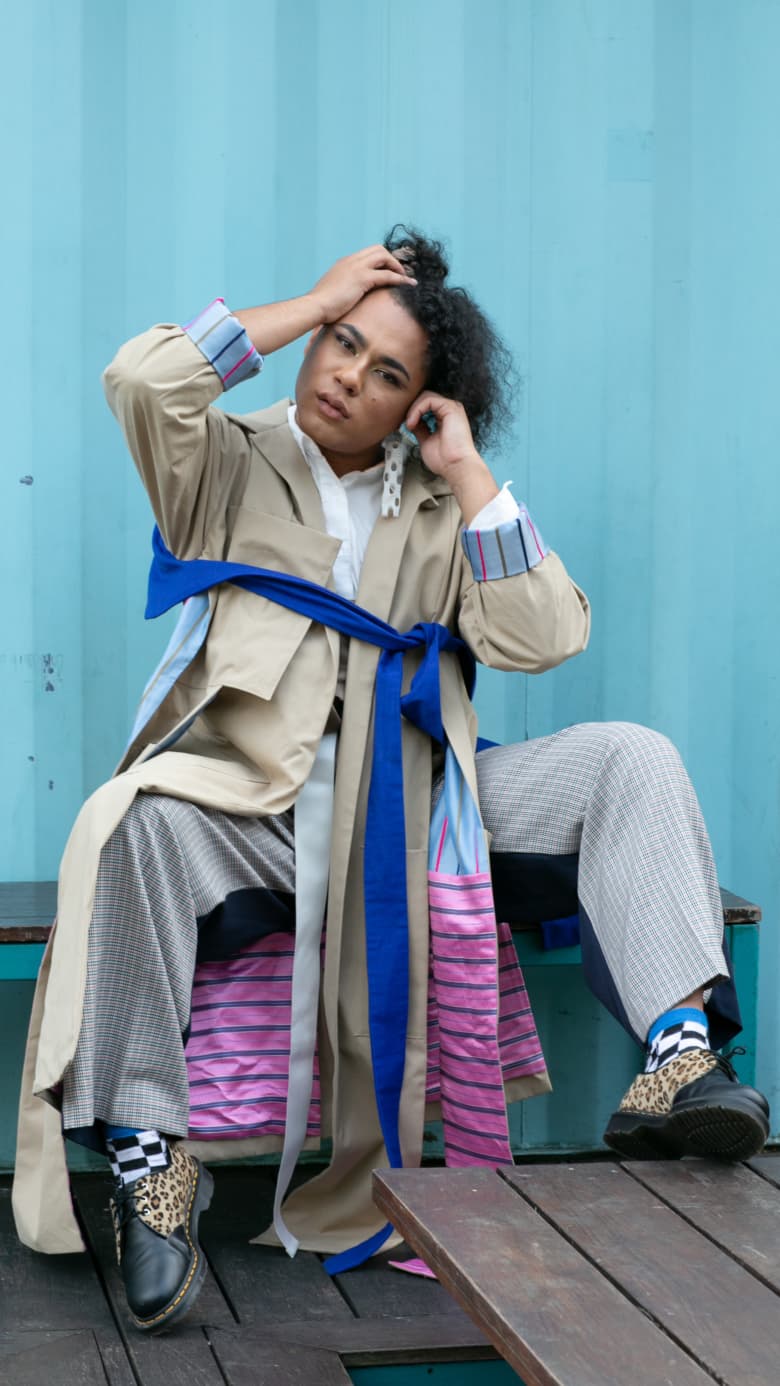
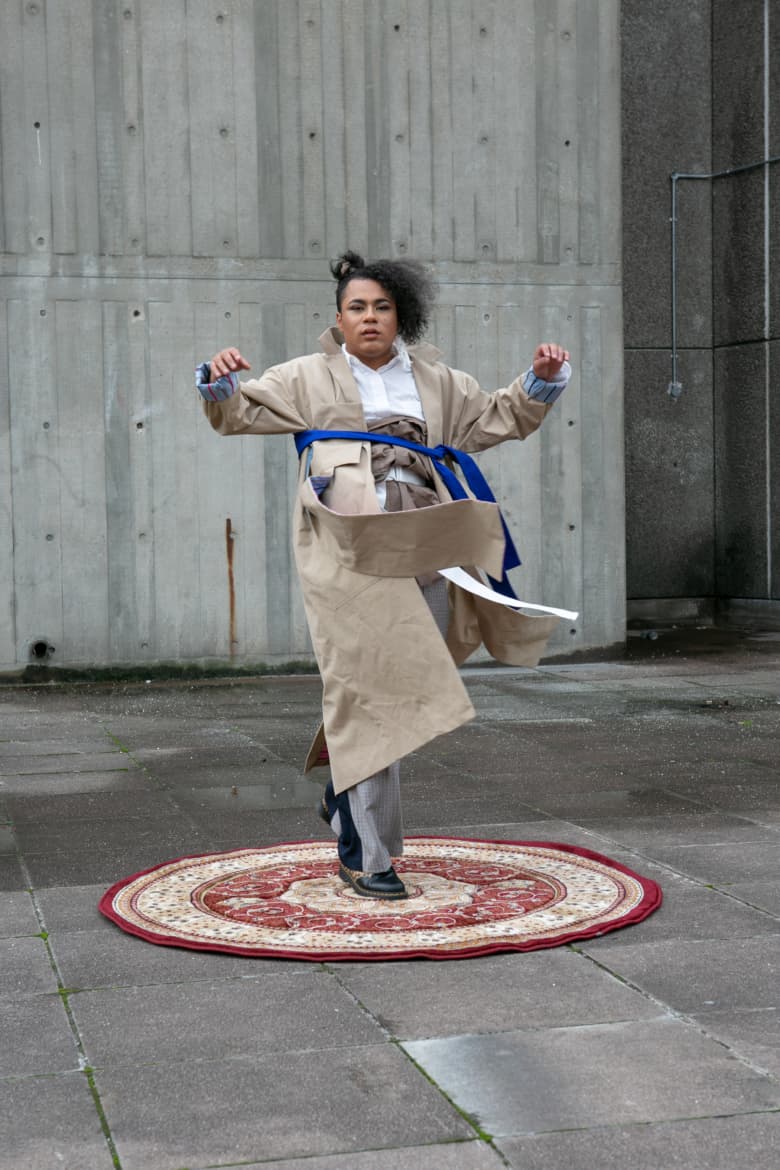
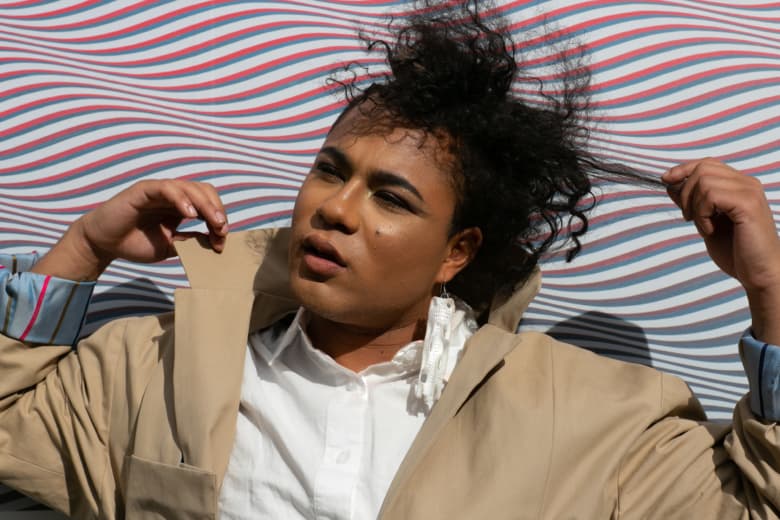
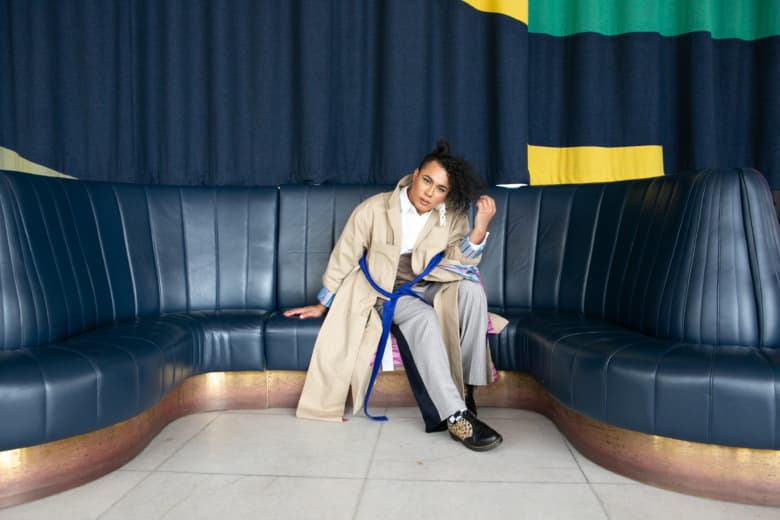
Burgerz will come to Newcastle, Glasgow, Warwick, Birmingham, Bristol, Cambridge and London’s Southbank Centre throughout the month of November.
I Tried to Fuck Up the System, But None of my Friends Texted me Back will come to Amsterdam’s Frascati Theatre on 7 November.
Travis will also be appearing alongside Amrou Al-Kadhi and Juno Roche on 24 October for Own Your Gender, in celebration of the release of Trans Power.
For further information about Travis’s performances, you can follow them on Instagram and Twitter.

